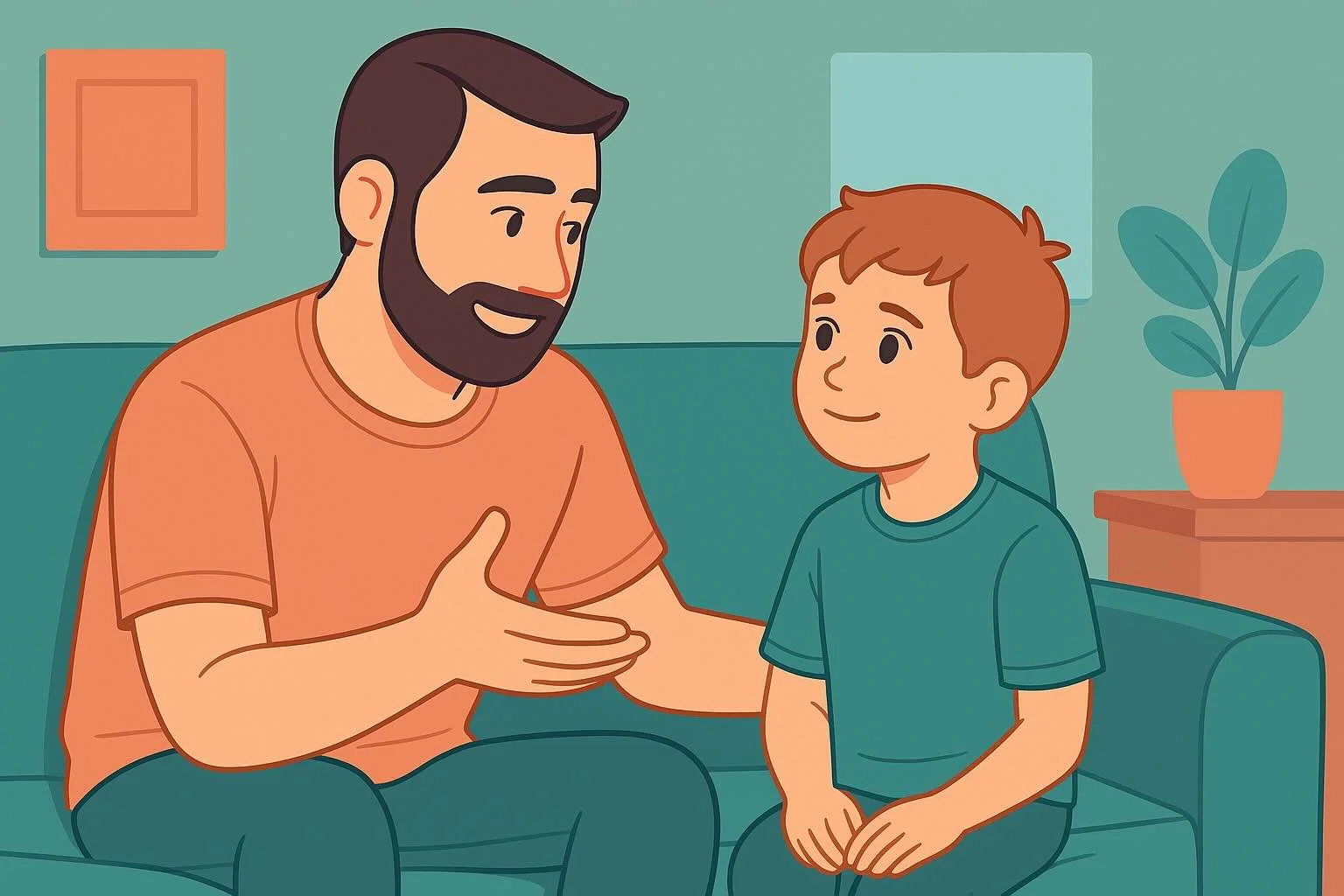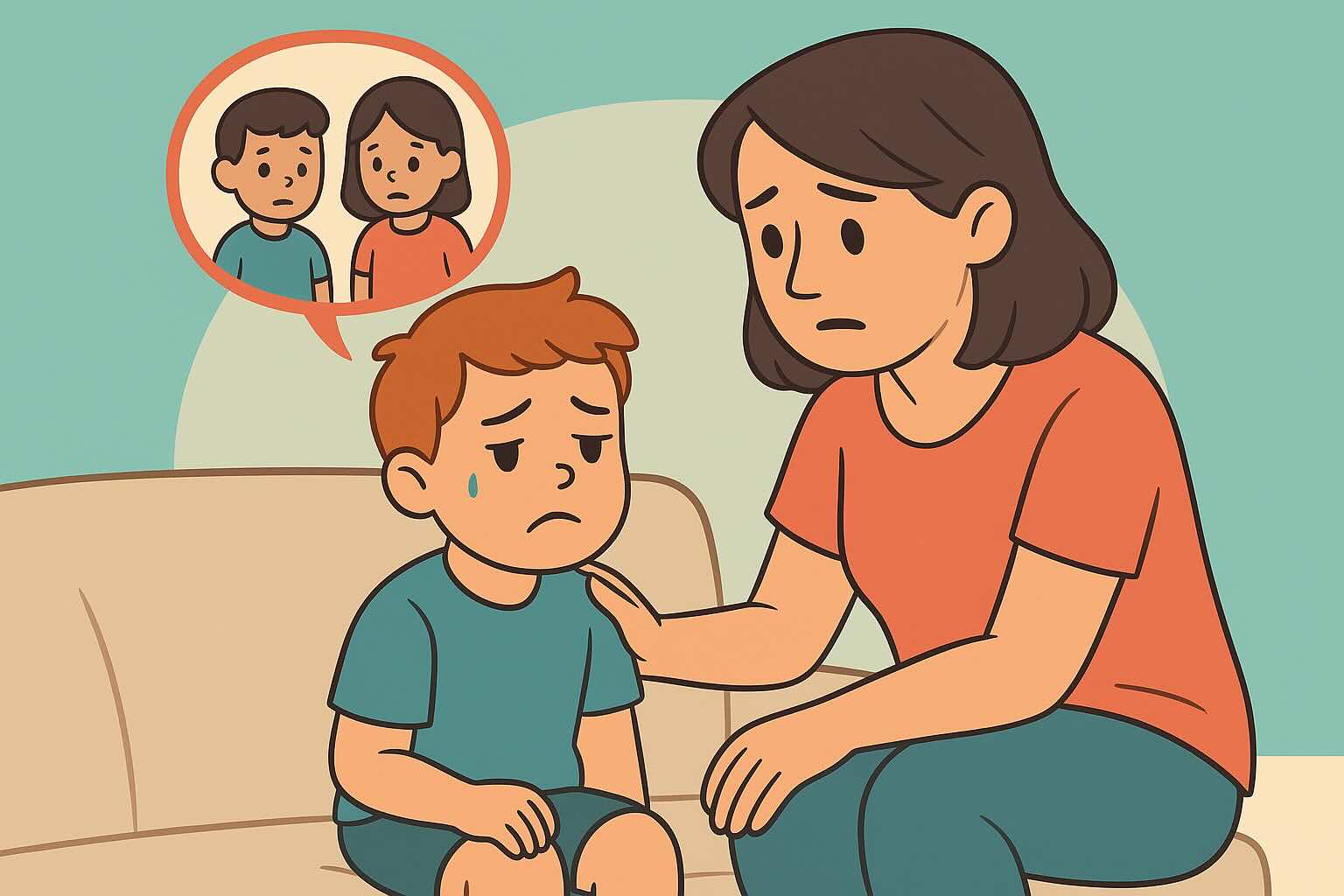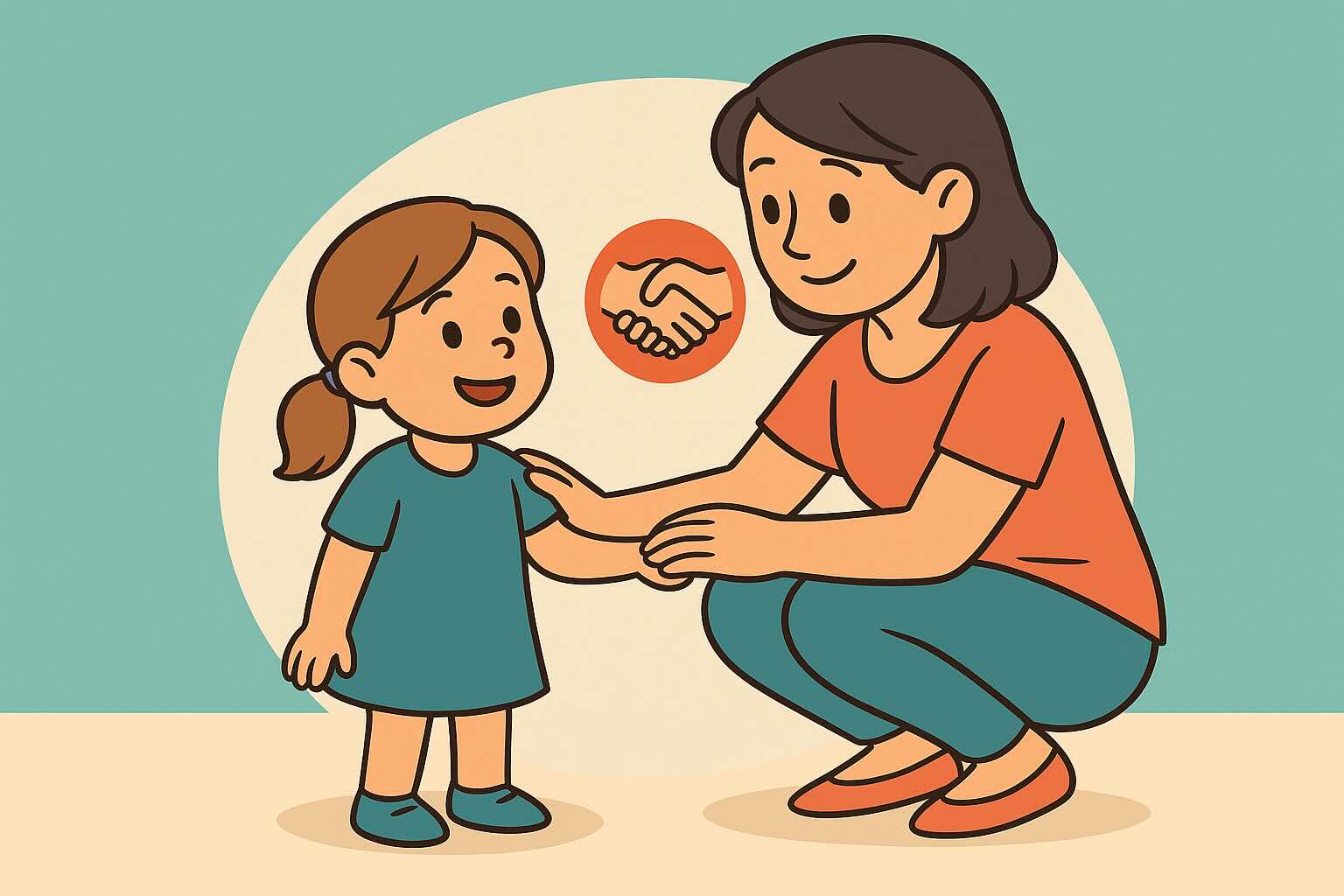The Spirited Child: 8 Ways to Channel Strong Will Into Leadership

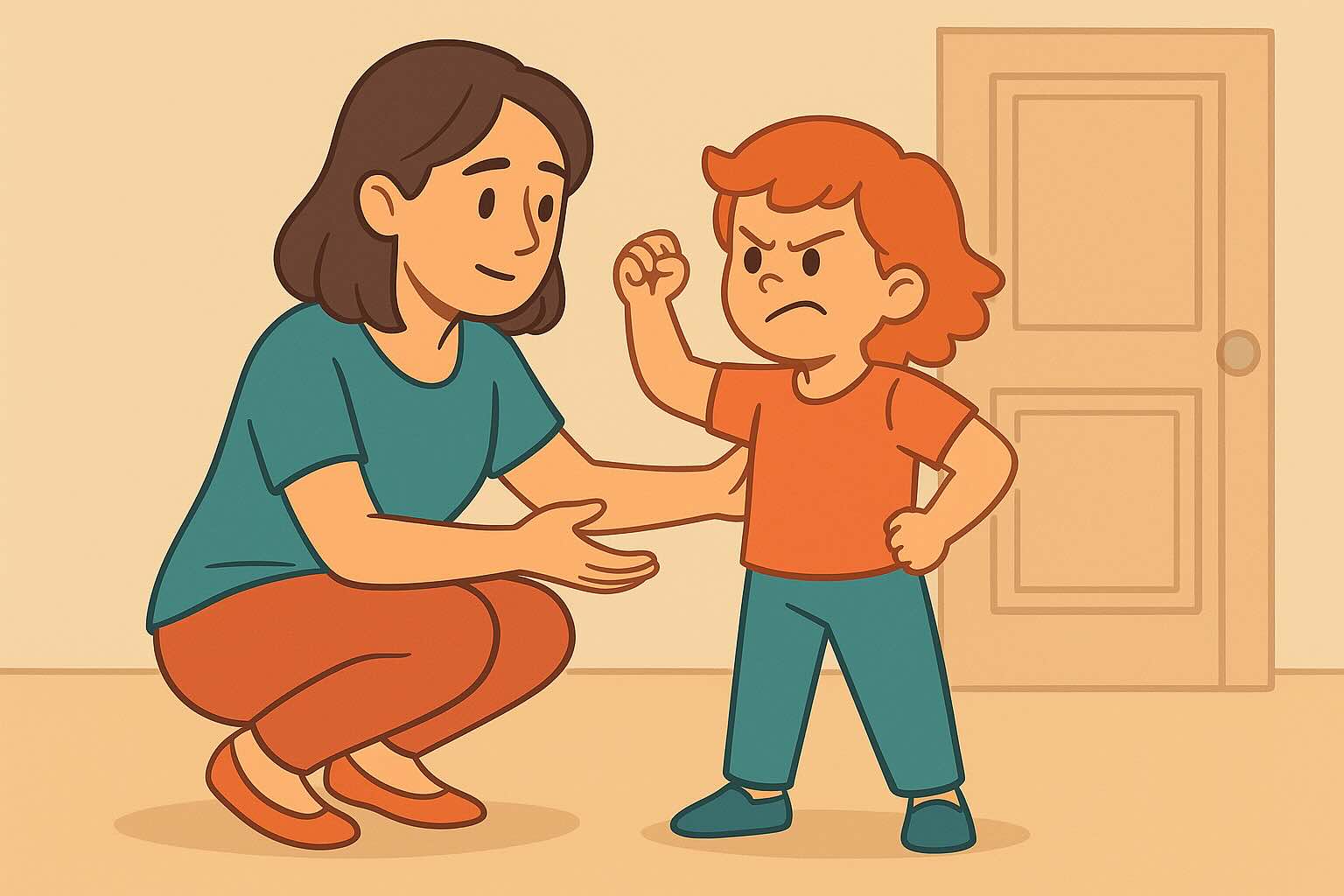
The Spirited Child: Complete Parent's Guide to Raising Strong-Willed Kids (Ages 3-7)
Supporting Your Natural Leader Without the Power Struggles
If you're reading this after yet another epic battle with your strong-willed child, you're probably wondering if you're doing everything wrong. The truth? Your spirited child isn't broken, and neither are you. These natural-born leaders just need different guidance than their more compliant peers.
Research shows that children with "difficult" temperaments often become the most successful adults when their traits are channeled positively. Your job isn't to break their spirit—it's to help them use their powerful personality as a strength, not a weapon.
This comprehensive guide provides evidence-based strategies specifically designed for spirited, strong-willed children aged 3-7. No more daily power struggles, no more feeling like you're walking on eggshells—just practical tools to transform challenges into leadership strengths.
To understand your child's complete temperament profile, start with our personality identification guide. You may also find it helpful to compare with our guides on cooperative children and sensitive children. If your spirited child is having social challenges, our social misunderstandings guide provides additional support.
What You'll Learn in This Guide
- Understanding Your Spirited Child - Why they behave this way and what they really need
- The Parent Trigger Factor - How to manage your own reactions to stop the cycle
- The 4-Step Response Framework - Exactly how to handle pushback and defiance
- Channeling Their Leadership - Turning "bossy" into positive influence skills
- Age-Specific Strategies - Different approaches for 3-4 vs. 5-7 year olds
- Social Skills Development - Helping them make and keep friends
- Long-Term Success - Building emotional intelligence and self-regulation
Estimated reading time: 12 minutes
Understanding Your Spirited Child: What Makes Them Tick
The Spirited Personality Profile
Your spirited child is wired differently from birth. They're natural rebels who don't shy away from confrontation, push back against rules, and strive to feel independent. This isn't defiance for the sake of being difficult—it's their authentic way of experiencing and interacting with the world.
Common spirited child characteristics:
- Questions authority and rules regularly
- Has big reactions when things don't go their way
- Prefers to lead rather than follow
- Thinks independently and originally
- Feels oppressed by too many rules or restrictions
- Can come across as bossy or demanding
- Shows intense emotions, both positive and negative
- Fights for fairness and justice (as they see it)
Why Your Spirited Child Acts This Way
Brain development factors:
- Emotional intensity: Their emotional center is highly active, creating big feelings
- Independence drive: Strong need for autonomy conflicts with necessary structure
- Justice sensitivity: Heightened awareness of fairness can make rules feel arbitrary
- Control needs: Feeling powerless triggers stronger resistance than in other children
It's important to understand: This isn't about you failing as a parent. Spirited children challenge even the most experienced caregivers. Their behavior reflects their temperament, not your parenting quality.
The Hidden Strengths of Spirited Children
Before we dive into management strategies, let's acknowledge what makes your spirited child special:
Natural leadership abilities:
- Independent thinking and decision-making
- Willingness to stand up for beliefs and others
- Creative problem-solving approaches
- Strong sense of justice and fairness
- Determination and persistence
- Resistance to negative peer pressure
Future success indicators: Research shows that children with "difficult" temperaments who receive appropriate guidance often become:
- Successful entrepreneurs and leaders
- Creative innovators and artists
- Advocates for social justice
- Independent, confident adults
- People who stand up for their values
The Parent Trigger Factor: Managing Your Own Reactions
Why Spirited Children Trigger Us So Intensely
Your spirited child's behavior can trigger intense emotional reactions that surprise you with their strength. This is normal and understandable—their pushback activates your stress response systems.
Common trigger emotions:
- Feeling disrespected or challenged
- Worry that something is "wrong" with your child
- Embarrassment about their public behavior
- Loss of control over situations
- Exhaustion from constant battles
- Fear that you're raising a "problem child"
Understanding Your Specific Triggers
Take time to reflect on what specifically sets you off. Common patterns include:
Control triggers: "When my child doesn't listen, I feel out of control" Respect triggers: "Their pushback feels disrespectful and ungrateful" Competence triggers: "Their behavior makes me feel like a bad parent" Memory triggers: "Their defiance reminds me of my own difficult childhood"
Developing Your Parenting Mantra
Choose a short phrase to repeat during challenging moments:
Emotional regulation mantras:
- "My child is powerful. That's a good thing."
- "This is hard AND I can do hard things."
- "My child is just a child. I am the mentor."
- "It's not a crisis. This will pass."
- "I can stay calm while they feel big emotions."
The Power of Your Calm Response
Your emotional regulation is your greatest tool. When you stay calm while your child is dysregulated, you:
- Model emotional regulation skills
- Avoid escalating the situation
- Maintain your authority through composure
- Show them that their big emotions don't overwhelm you
- Create safety for them to calm down
The 4-Step Response Framework for Spirited Behavior
Step 1: Pause and Breathe (Don't Take the Bait)
When your spirited child pushes back, your immediate instinct might be to fight back or prove your authority. Instead, pause. Take a breath. Remember that their reaction is emotional, not logical.
What to do:
- Take 3 deep breaths before responding
- Lower your voice instead of raising it
- Remind yourself: "Don't take the bait"
- Stay physically calm (unclenched jaw, relaxed shoulders)
What NOT to do:
- Match their intensity with your own
- Start lecturing or over-explaining
- Try to convince them you're right
- Make threats or ultimatums
Step 2: Acknowledge and Validate (Without Giving In)
Validation acknowledges their feelings while maintaining your boundary. This is crucial for spirited children who need to feel heard and understood.
Validation scripts:
- "I hear your no, AND yes, we are doing this."
- "You really don't want to clean up right now. I get it. Still needs to happen."
- "It's hard when you can't do what you want. The answer is still no."
- "You're frustrated that I'm telling you what to do. You can feel frustrated AND still do what needs to be done."
Key principle: Use "AND" instead of "BUT" to avoid negating their feelings.
Step 3: Set Clear, Simple Boundaries
Spirited children need crystal-clear expectations without lengthy explanations or negotiations.
Boundary-setting language:
- "This is what we're doing right now."
- "That's not a choice. This is."
- "You can do this the easy way or the hard way."
- "I'm not discussing this. Here's what's happening."
Offer choices within boundaries:
- "You need to clean up. Do you want to start with blocks or books?"
- "We're leaving in 5 minutes. Do you want to walk to the car or should I carry you?"
- "Homework time. Do you want to do math or reading first?"
Step 4: Follow Through Consistently
Your follow-through teaches your spirited child that you mean what you say. Inconsistency actually increases their pushback because they learn that persistence might change your mind.
Consistent follow-through means:
- Doing what you said you would do
- Not giving warnings without action
- Staying calm during the follow-through
- Not negotiating once you've set the boundary
Natural consequences work better than punishments:
- If they refuse to clean up, you put the toys away for the day
- If they won't get ready for school, they go in pajamas (with clothes in a bag)
- If they won't come to dinner, they wait until the next meal
Channeling Leadership: From "Bossy" to Influential
Teaching the Difference Between Leading and Bossing
Your spirited child has natural leadership abilities that need refinement, not elimination.
Leading vs. Bossing comparison:
- Leading: "Who wants to play this game with me?"
- Bossing: "We're playing this game and you have to do what I say."
- Leading: "I have an idea. What do you think?"
- Bossing: "Do this right now because I said so."
Conversation Starters About Leadership
During calm moments, explore leadership concepts:
- "What makes a good leader?"
- "How do you feel when someone bosses you around?"
- "What's the difference between asking and telling?"
- "When you're the leader, how can you make sure everyone has fun?"
Use real-world examples:
- Point out good leadership in books, movies, or real life
- Discuss how they feel when different people give them instructions
- Practice taking turns being the leader in family activities
Decision-Making Practice
Help your spirited child understand the difference between their decisions and adult decisions.
Create decision-making opportunities:
- What to wear (from appropriate choices)
- Which activity to do first
- How to arrange their room
- Which friend to invite for a playdate
- What to eat first from their plate
Acknowledge their good decisions:
- "You chose to clean up before I asked. That was a great decision."
- "I see you decided to help your sister. That was thoughtful leadership."
- "You picked clothes that are perfect for today's weather. Good choice."
Age-Specific Strategies for Spirited Children
Ages 3-4: The "Testing" Phase
At this age, spirited children are figuring out how much power they have and where the boundaries are.
Effective strategies:
- Keep rules simple and visual
- Offer very limited choices (2 options maximum)
- Use "when/then" statements frequently
- Create routines that give them some control
- Use timers for transitions
Common challenges and solutions:
- Bedtime battles: Create a visual bedtime routine chart they can follow
- Getting dressed: Lay out two outfit choices the night before
- Leaving activities: Use timers and count-downs to prepare them
- Sharing toys: Practice turn-taking with timers
Ages 5-7: The "Reasoning" Phase
Older spirited children can understand more complex explanations but still need clear boundaries.
Effective strategies:
- Explain the "why" behind rules when calm
- Involve them in creating family rules
- Use problem-solving conversations
- Give them leadership roles in the family
- Practice social skills through role-play
Common challenges and solutions:
- Homework resistance: Let them choose when and where to do it (within limits)
- Arguing with friends: Role-play different ways to handle disagreements
- Chore complaints: Create a job chart and let them pick their responsibilities
- Following teacher instructions: Practice respect for authority figures
Social Skills Development for Spirited Children
The Friendship Challenge
Spirited children often struggle socially because their natural leadership style can come across as bossy or controlling to peers.
Common social difficulties:
- Taking over games and activities
- Having trouble with compromise
- Getting frustrated when others don't follow their ideas
- Difficulty reading social cues
- Being labeled as "mean" or "bossy" by other children
Teaching Social Flexibility
Conversation starters about friendship:
- "What makes someone a good friend?"
- "How do you feel when someone always tells you what to do?"
- "What happens when two people both want to be the leader?"
- "How can you have fun even when someone else is choosing the activity?"
Practice scenarios through role-play:
- Taking turns choosing activities
- Joining a game that's already started
- Handling disagreements without fighting
- Asking instead of demanding
- Compromising when you want different things
Building Empathy and Perspective-Taking
Help your spirited child understand other people's feelings and viewpoints.
Daily empathy exercises:
- "How do you think your sister felt when that happened?"
- "What would you want a friend to do if you were feeling sad?"
- "If you were the teacher, how would you want students to behave?"
- "How does it feel in your body when someone is kind to you?"
Use books and stories:
- Read books about friendship and social situations
- Discuss character motivations and feelings
- Ask "what would you do?" questions about story conflicts
- Connect story situations to real-life experiences
Handling Specific Spirited Behaviors
The Daily Power Struggles
Morning routine battles: Create visual schedules and let them check off completed tasks. Give choices within the routine structure.
Meal time arguments: Serve family-style meals where they can choose what and how much to eat from what's offered. Don't become a short-order cook.
Bedtime resistance: Establish a consistent routine and let them have some control (which pajamas, which book, which stuffed animal).
Clean-up refusal: Set a timer and make it a game. Play energetic music. Clean up together rather than demanding they do it alone.
Handling Public Meltdowns
Preparation strategies:
- Discuss expectations before going out
- Bring snacks and quiet activities
- Plan for shorter outings initially
- Have an exit strategy if needed
In-the-moment techniques:
- Stay calm and get on their level
- Use a quiet, firm voice
- Remove them from the situation if necessary
- Don't negotiate with an escalated child
Follow-up conversations:
- Discuss what happened when everyone is calm
- Problem-solve for next time
- Acknowledge any positive moments from the outing
- Practice appropriate public behavior at home
When Spirited Behavior Becomes Aggressive
Set immediate, clear boundaries:
- "I won't let you hurt others."
- "Bodies are for helping, not hurting."
- "I will keep everyone safe."
Immediate consequences:
- Stop the activity immediately
- Remove them from the social situation
- Stay close to ensure safety
- Don't lecture during the heated moment
Later problem-solving:
- Discuss what happened when calm
- Practice alternative ways to express frustration
- Role-play the situation with different outcomes
- Create a plan for similar future situations
Building Long-Term Emotional Intelligence
Teaching Self-Regulation Skills
Breathing techniques for big emotions:
- "Smell the flower" (deep breath in)
- "Blow out the candle" (slow breath out)
- Count to 10 (or as high as they can)
- "Balloon breathing" (expand belly, then deflate)
Physical regulation strategies:
- Create a calm-down corner with comfort items
- Use heavy work activities (pushing, pulling, carrying)
- Try calming sensory activities (fidget toys, stress balls)
- Encourage physical exercise for emotional release
Emotional vocabulary building:
- Read books about feelings and emotions
- Create feeling faces or emotion wheels
- Practice naming emotions throughout the day
- Model your own emotional regulation out loud
The Special Time Strategy
Spirited children need regular one-on-one time where they get to be the leader.
Special time guidelines:
- 15-20 minutes of uninterrupted time
- Let them choose the activity
- Follow their lead completely
- No teaching or correcting during this time
- Focus on connection, not behavior modification
Special time activities:
- Let them teach you their favorite game
- Follow their instructions for an art project
- Listen to them explain something they're interested in
- Let them be the "teacher" and you be the "student"
Benefits of special time:
- Fills their need for control and leadership
- Strengthens your relationship
- Provides positive attention for good behavior
- Reduces attention-seeking negative behaviors
When to Seek Professional Help
Red Flags That Warrant Support
While spirited behavior is normal, some signs indicate a need for professional guidance:
Behavioral concerns:
- Aggression toward others that doesn't improve with consistent intervention
- Destruction of property during emotional outbursts
- Complete inability to follow any adult guidance
- Behaviors that significantly impact family functioning for over 3 months
- No positive peer relationships despite social opportunities
Emotional concerns:
- Extreme emotional reactions that last hours
- Inability to calm down without extensive adult support
- Persistent negative mood or anger
- Expressions of wanting to hurt themselves or others
- Regression in previously mastered skills
Types of Professional Support
Child psychologists: Specialize in behavioral strategies and emotional regulation Family therapists: Help with family dynamics and parenting approaches Occupational therapists: Address sensory processing and self-regulation School counselors: Provide support for classroom behavior and social skills Pediatricians: Rule out any underlying medical or developmental issues
Success Stories: Real Families, Real Results
Emma's Transformation: From Battles to Cooperation
"My 4-year-old Emma fought me on everything. Getting dressed was a 30-minute battle, and she'd have meltdowns when we had to leave activities. Once I started giving her choices within boundaries and stopped trying to reason with her during meltdowns, things began to change. I'd say 'You can put your shirt on first or your pants on first' instead of 'Get dressed now.' Within about 6 weeks, our daily conflicts decreased by about 80%. She still has strong opinions, but now she feels like she has some control."
Marcus's Social Success: Learning to Lead Without Bossing
"Marcus was having trouble keeping friends because he always wanted to control every game. We started practicing 'leader days' at home where each family member got to plan an activity for everyone else. We also role-played different ways to suggest activities to friends. It took several months, but he learned to ask 'What do you want to play?' instead of always announcing what they were going to do. His teacher noticed he was making more friends and having fewer conflicts at recess."
Sofia's Emotional Growth: From Explosions to Expression
"Sofia's anger was so intense that she'd scream for hours and sometimes throw things. We created a calm-down corner with soft pillows and fidget toys, and I learned to stay nearby but not engage during her storms. I also started acknowledging her feelings: 'You're really mad that you can't have a cookie before dinner.' The breakthrough came when she started using the calm-down corner on her own and saying 'I'm really frustrated right now.' Her emotional storms still happen, but they're shorter and less intense."
Your 8-Week Action Plan for Spirited Child Success
Weeks 1-2: Understanding and Observation
- Track your child's triggers and your own emotional reactions
- Practice staying calm during conflicts
- Start using validation language without giving in
- Begin offering choices within boundaries
Weeks 3-4: Implementing New Responses
- Use the 4-step response framework consistently
- Create decision-making opportunities throughout the day
- Start having conversations about leadership vs. bossing
- Establish special time together
Weeks 5-6: Building Social Skills
- Practice social scenarios through role-play
- Discuss empathy and perspective-taking
- Work on compromise and turn-taking skills
- Address any peer relationship challenges
Weeks 7-8: Long-term Strategies
- Focus on emotional regulation skill-building
- Create family leadership opportunities
- Develop problem-solving conversations
- Celebrate progress and plan for continued growth
Ongoing Maintenance
- Continue consistent boundary-setting
- Regular special time and connection
- Ongoing social skills practice
- Adjust strategies as your child develops
The Long-Term Vision: Raising Confident Leaders
What Success Looks Like
Success with a spirited child doesn't mean compliance or elimination of their strong will. Instead, look for:
Emotional progress:
- Shorter recovery time from upsets
- Ability to calm down with minimal adult support
- Using words to express frustration instead of actions
- Accepting comfort when dysregulated
Social development:
- Making and maintaining friendships
- Taking turns being the leader in play
- Showing empathy for others' feelings
- Handling disappointment more gracefully
Leadership growth:
- Inspiring others through positive influence
- Standing up for what's right
- Including others in their ideas and plans
- Using their strength to help rather than overpower
The Gift of a Spirited Child
Remember that your spirited child's intensity, determination, and independence are gifts that will serve them well in life. Your job isn't to break their spirit but to channel it positively.
Future strengths they're developing:
- Confidence to stand up for their beliefs
- Independence and self-reliance
- Creative problem-solving abilities
- Leadership skills and natural charisma
- Resistance to negative peer pressure
- Passion and determination to achieve goals
Key Takeaways: Your Spirited Child Success Guide
- ✅ Spirited behavior is temperament, not defiance - it's how they're wired
- ✅ Your calm response is your greatest tool - don't take the bait
- ✅ Validation without giving in builds connection while maintaining boundaries
- ✅ Choices within boundaries satisfy their need for control
- ✅ Leadership skills need channeling, not crushing - teach leading vs. bossing
- ✅ Consistency is crucial - follow through every time
- ✅ Social skills require practice - role-play and real-world opportunities
- ✅ Special time fills their leadership needs positively
- ✅ Professional help is available when behaviors become concerning
- ✅ Their intensity is a gift that will serve them well in life
Remember: You're not trying to change who your child is—you're helping them become the best version of themselves. Their strong will and leadership qualities are strengths that, when properly guided, will help them succeed in life.
This guide is based on child development research and clinical experience with strong-willed children. Individual results may vary based on family circumstances, consistency of implementation, and child temperament. Always consult with professionals if you have concerns about your child's emotional or behavioral development.
Multi-Child Support
Manage profiles for multiple children with personalized conversations and age-appropriate advice for each child.
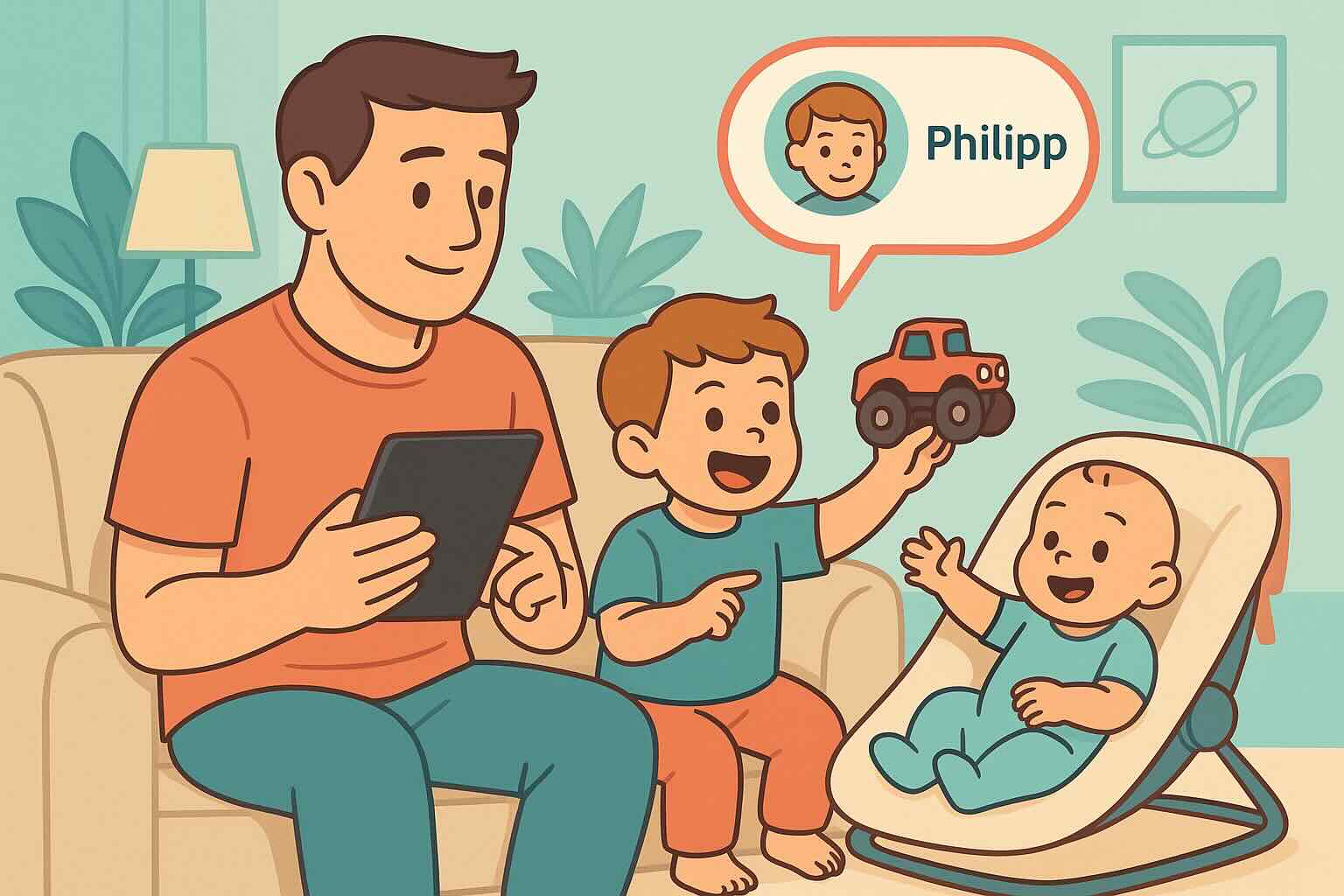
Social Skills Toolkit
Help your child navigate social challenges with resilience-building strategies, perspective-taking tools, and friendship skills.
Frequently Asked Questions
Need personalized support?
RootWise's AI coach can provide tailored strategies for your specific situation, available 24/7 when you need it most.
Learn More About AI Coaching →